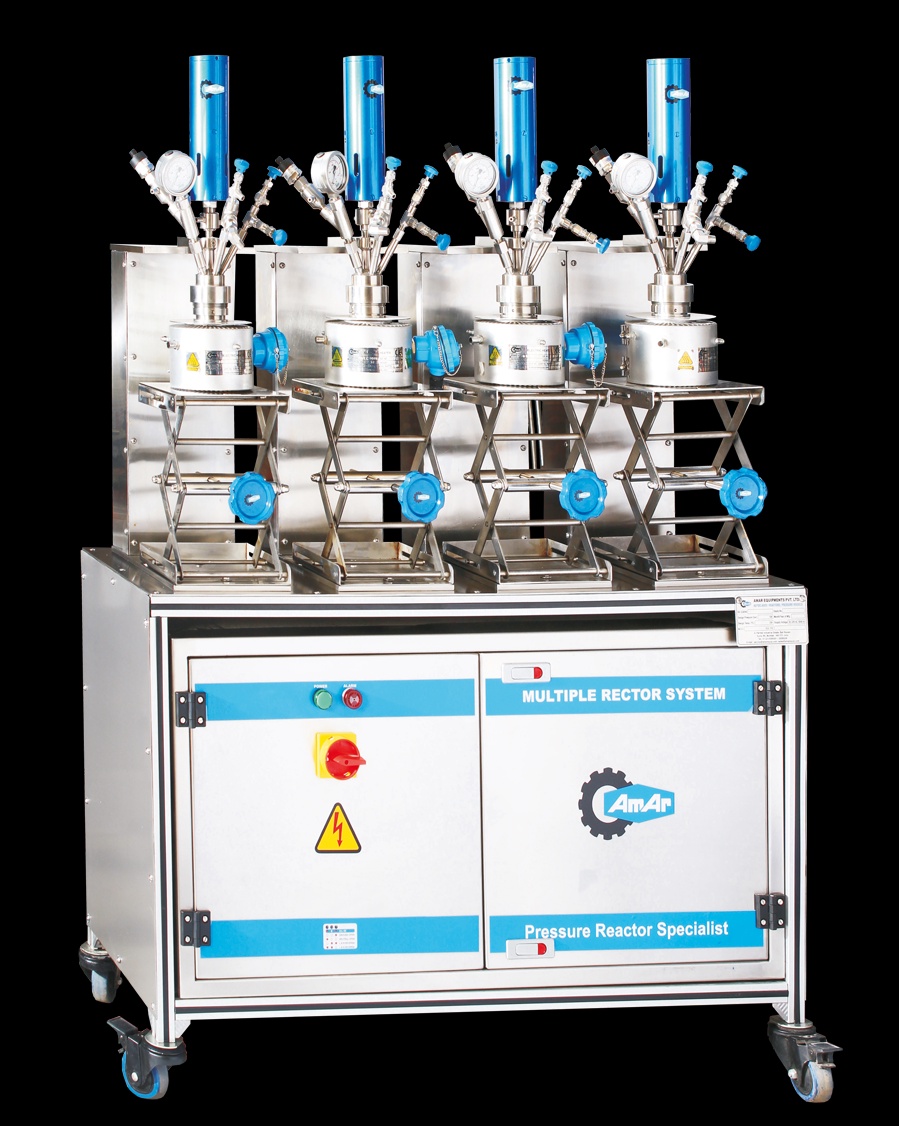The foundation of the modern chemical industry is chemical synthesis, which enables the manufacturing of a wide variety of materials and molecules that have an impact on a variety of industries, including pharmaceuticals, polymers, and speciality chemicals. High pressure reactors have become effective instruments for chemical synthesis in recent years, enabling scientists to conduct reactions at high pressures. These reactors have completely changed the way we think about synthesis and have a number of advantages over conventional atmospheric pressure reactions. In this article, we will examine the adaptability of high-pressure reactors and show how crucially they have advanced chemical synthesis.
Improved Reactivity & Selectivity:
Reactions can be carried out in a setting with pressures substantially higher than atmospheric pressure thanks to high pressure reactors. The selectivity and reactivity of chemical processes can be significantly affected by this change in pressure. Pressure buildup can hasten reaction rates, facilitating quicker and more effective synthesis procedures. High pressure can also affect how reactions are balanced, favouring the creation of desired products and minimising undesirable side effects. Chemists can increase yields and improve selectivity by fine-tuning the pressure settings, which boosts the effectiveness of the synthesis of complicated molecules.
Expanded Reaction Scope:
The variety of reactions that may be effectively conducted in the lab has expanded because to high pressure reactors. At high pressures, many chemical processes that were difficult or impossible under ordinary circumstances are suddenly achievable. For instance, high-pressure polymerization techniques can be used to synthesise polymers with regulated molecular weight and structure. New materials can also be created under high pressure, including zeolites, high-performance polymers, and catalysts with specialised properties. Exploring new reaction routes and gaining access to novel chemicals have created exciting opportunities for innovation across a variety of industries.
Supercritical Fluid Chemistry:
The capacity of high pressure reactors to use supercritical fluids as reaction media is an intriguing feature. Supercritical fluids display tremendous solvating power and distinctive mass transport capabilities, bridging the gap between liquids and gases. A popular supercritical fluid is carbon dioxide (CO2) since it is inexpensive, non-toxic, and environmentally friendly. Applications for high pressure CO2 can be found in a variety of fields, such as extraction, separation, and catalysis. It is a desirable substitute for conventional organic solvents because of its adjustable features, which enable selective and effective reactions. High pressure reactors provide a more environmentally friendly and long-lasting method of conducting chemical synthesis by utilising the strength of supercritical fluids.
Safety Considerations:
Safety must always come first while working with high pressure reactors. Robust reactor design and stringent safety procedures are required for operation at high pressures. But developments in materials science and engineering have made it easier to create high pressure reactors that can endure the demanding circumstances. Furthermore, access to advanced monitoring and control systems enables researchers to preserve ideal working conditions and reduce the dangers related to high pressure reactions. High pressure reactors, when operated properly, can offer a secure and regulated setting for carrying out chemical synthesis.
Conclusion:
High pressure reactors are incredibly versatile when it comes to chemical synthesis. They expand the possibilities of synthetic chemistry by allowing for increased reactivity, greater selectivity, and access to new reaction pathways. The efficient synthesis of valuable chemicals and the development of novel materials both depend on high pressure reactions. We may expect more advances in the field of chemical synthesis as researchers continue to investigate the options provided by high pressure reactors, which will result in improvements in numerous sectors and a more sustainable future. Visit High Pressure Reactors to know more about High Pressure Reactors


No comments yet